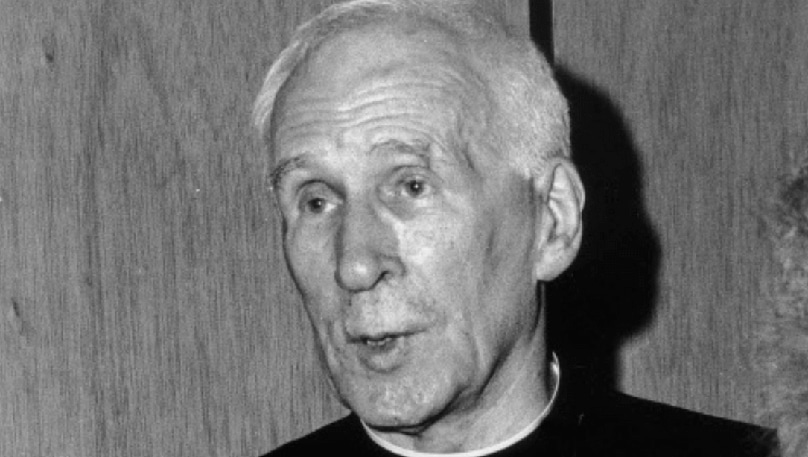
On 31 March, the bishops of France announced that they would petition the Holy See for permission to open a beatification cause for Fr Henri de Lubac SJ. Whatever the outcome of the cause, paying such a tribute to one of the great figures of 20th-century Catholic theology was a fitting way to continue celebrating the 60th anniversary of the Second Vatican Council’s opening.
For without Fr de Lubac’s pioneering work in recovering the fathers of the church and the riches of medieval biblical commentary for contemporary Catholic thought, the key texts of Vatican II—its dogmatic constitutions on divine revelation and on the church—would not be so richly scriptural and patristic in content and style.
Who was Henri de Lubac? He was a veteran of the French army in World War I, during which he was severely wounded.
He was, as just noted, a leading figure in the movement to revitalise Catholic theology by a “return to the sources.”
He was a leader in the French Catholic resistance to Nazism after the fall of France in 1940 and a keen student of modern atheism.
Exiled to the theological sidelines during the last years of Pius XII, he was rehabilitated by John XXIII, who appointed him to one of the commissions planning Vatican II.
During the council, he played a pivotal, if under-appreciated, role by arguing in his gentle way that Vatican II was not summoned to reinvent Catholicism, but to renew it for mission by deepening the church’s understanding of the Gospel so that the church might more effectively offer Jesus Christ to the world.
For it was Fr de Lubac who ignited the War of the Conciliar Succession: the fierce struggle—not between stereotypical “progressives” and “traditionalists” but among the reformist theologians at the Council—over the meaning of the entire conciliar experience.
The French Jesuit stood with his younger German colleague, Joseph Ratzinger, and others in insisting that Vatican II was a council of reform in continuity with tradition, not a council of rupture with the tradition—what some today call a council effecting a “paradigm shift.”
And for this, Fr de Lubac paid a considerable price. When he was named a cardinal by John Paul II in 1983—the first in a series of influential Vatican II theologians so honored by the Polish pope—his Jesuit brethren in France, many of whom regarded him as a theological turncoat, behaved abominably.
Initially furious at the nomination, then indifferent, they dismissed this as “not our affair” and refused to help the 87-year-old cardinal-designate prepare for the consistory at which he would receive the red hat.
Fr de Lubac’s young friends in the circle of the French edition of Communio (a journal he helped create) stepped in, buying him the new robes appropriate to a cardinal and dunning de Lubac’s provincial into providing him a return ticket to Rome and a companion for the journey.
On returning from the consistory, Cardinal de Lubac was given a reception by the Parisian Jesuits, at which only soft drinks were served.
Throughout this trial, as during the years when he was held in suspicion by church authorities in the Vatican, Henri de Lubac behaved like a gentleman. He was more than that, though.
He was a true churchman, as demonstrated by his memoir, At the Service of the Church: Henri de Lubac Reflects on the Circumstances That Occasioned His Writings (Ignatius Press).
Whether beset by misunderstanding, slander or maliciousness, he remained a paragon of reason and charity. Scholars will continue to debate Fr de Lubac’s teaching on the relationship of nature and grace, the natural and the supernatural.
But there can be no question of the French theologian’s devotion to the cause of Christ or his fidelity to the Church.
He took seriously St. Ignatius’s command that the men of the Society of Jesus should “set the world ablaze.”
He understood that the tools for igniting evangelisation must be refined over time, for the truths Christ had bequeathed to the church could not be confined to a single set of formulas.
Those truths were enduring, however, and it was the theologian’s task to harness his thinking to them, not to imagine himself their master.
Henri de Lubac knew that the great totalitarianisms of his time—Nazism and communism—were false, ultramundane religions that had to be fought with what he called “weapons of the spirit.”
Those same “weapons” could also serve to renew the church for mission. His was a grand vision, well lived. Whether he is eventually beatified or not, it is right to honor him for articulating it.
